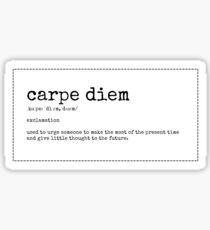

When its architect, Sir Christopher Wren, died twelve years later in 1723, he was entombed inside, under a simple slab of black marble. It took 35 years to complete London's magnificent St. Anon., The Case of those persons that have purchased soldiers arrears, the Irish transport debt, salt tallies, malt tickets, or an interest in any other deficient funds, 1698ĭefinition - "if you seek his monument, look around" Where Officers sold their Pay two or three times over, what Provision shall be made for the second or third Purchaser? Caveat Emptor is the common Answer, then let him have a better Bargain for the great Risque he runs, &c. Over time, the imperative of caveat emptor has been softened by warranties, both express and implied.Ĭaveat has been adopted directly into English, and has a small range of meanings, including "a warning enjoining one from certain acts or practices" and "an explanation to prevent misinterpretation." Emptor has likewise been taken directly into our language, although the word is far less common than caveat it has retained the rather narrow meaning of "buyer, purchaser." We glorify Him by taking time to appreciate all He has given us (2 Peter 1:3 Romans 8:32), by investing our time and resources in things that matter (Matthew 6:20), and by preparing wisely for the future, both here and in eternity (Proverbs 6:6–8 2 Corinthians 4:16–18).In early Roman law, sales of goods were governed by caveat emptor: buyers were advised to scrutinize the goods before purchase, because sellers had few obligations. Our purpose is to glorify God in everything we do (1 Corinthians 10:31). We were not given life so that we could “seize the day” in selfish ways. Our lives were given to us for purpose, but that purpose is not what the world tells us it is.

This is the true carpe diem this is truly “seizing the day.” We can thrill to a bird’s song, marvel at a sunset, and take time to listen to the lonely. When we live with the understanding that our days on this earth are numbered (Psalm 139:16) and that they are too few for us to waste fretting about what may never be, we can live “in the moment.” We should stop and smell (or gather) the roses and thank God for them. We can view carpe diem as seizing every moment that God allows us to live, savoring it and recognizing that we are not guaranteed tomorrow (see James 4:13–15). We are to be “making the most of every opportunity, because the days are evil” (Ephesians 5:16) and taking every opportunity to do good (Galatians 6:10 Colossians 4:5). Weeding out irresponsible and foolish responses to carpe diem, the general principle can have some value. Carpe diem kills the golden goose today, not caring that it forfeits the golden eggs that would have provided all year.
#MEANING OF CARPE DIEM FREE#
Versions of carpe diem define the mentality of some people in poverty, a mindset that prevents them from making strategic plans today that will pay off tomorrow and help them break free of indigence. The philosophy of carpe diem supports the attitude of indulging fleshly desires today because there may not be a chance to do so tomorrow. Most applications of carpe diem involve some level of impulsivity and irresponsibility, as in “ Eat, drink, and be merry, for tomorrow we die” (1 Corinthians 15:32). Planning for a good tomorrow is not the same as worrying about it. Take life easy eat, drink and be merry” (verse 19). Jesus called people “fools” who say to themselves, “You have plenty of grain laid up for many years. Jesus’ example in Luke 12:16–21 of a man living by the carpe diem philosophy was decidedly negative. Jesus’ instruction differs from the common understanding of carpe diem in that Jesus’ focus was on trusting God for tomorrow, not pretending it won’t come. Each day has enough trouble of its own.” This instruction followed Jesus’ reassurances that the Father knows what we need before we ask (verse 32). Jesus stated His own version of carpe diem in Matthew 6:34: ”So do not worry about tomorrow for tomorrow will care for itself. The idea of carpe diem is expressed in the opening stanza of Robert Herrick’s poem “To the Virgins to Make Much of Time”: When Lord Byron used the phrase in his Letters, published by Thomas Moore in 1830, it became a popular English idiom. The phrase carpe diem originated in the writings of Horace (65–8 BC) in his Odes Book I. Although the concept of carpe diem has some merit, there are also some negative connotations that a Christian should consider before using it as a life motto.


Carpe diem (pronounced ˈkar pay ˈdee um) is a Latin phrase meaning “seize the day,” or, more literally, “pluck the day (when it is ripe).” Carpe diem implies that one should live for today and not worry about tomorrow.


 0 kommentar(er)
0 kommentar(er)
